Truthdigger of the Week: ‘India’s Daughter’ Filmmaker and Activists Protesting the Documentary’s Ban
The documentary "India's Daughter," about the gang rape and evisceration of 23-year-old medical student Jyoti Singh in Delhi in 2012, has burst into the media spotlight because of a ban on the film in India.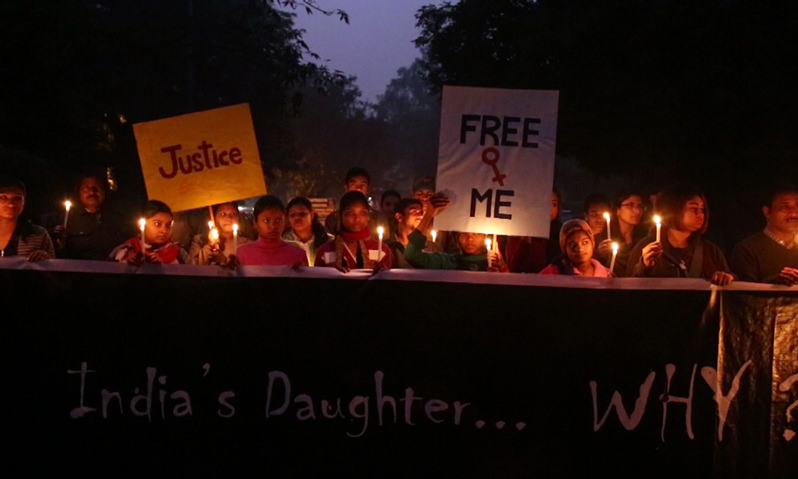 Protesters demonstrated for over a month after the gang rape and subsequent death of Jyoti Singh in late 2012. (Screen shot / BBC)
Protesters demonstrated for over a month after the gang rape and subsequent death of Jyoti Singh in late 2012. (Screen shot / BBC)
Every week the Truthdig editorial staff selects a Truthdigger of the Week, a group or person worthy of recognition for speaking truth to power, breaking the story or blowing the whistle. It is not a lifetime achievement award. Rather, we’re looking for newsmakers whose actions in a given week are worth celebrating.
The documentary “India’s Daughter,” about the gang rape and evisceration of 23-year-old medical student Jyoti Singh in Delhi in 2012, has burst into the media spotlight because of a ban on the film in India. Set to air March 8 on the BBC and India’s NDTV in time for International Women’s Day, the Indian government forbade it to be broadcast in that country, claiming that filmmaker Leslee Udwin failed to follow protocol regarding an interview with one of the imprisoned rapists, currently on death row.
“India’s Daughter” is an in-depth investigation not only of the events that led to Singh’s death but also of the young woman’s family and aspirations, of the convicted rapists’ upbringing and mentality, and, perhaps most important, of the movement the traumatic event reignited in India. Singh, the film shows us, came from a family that chose to celebrate her birth, as onlookers marveled at the fact that her parents were rejoicing as though a boy had been born. Interviews with her parents, Asha and Badri Singh, as well as a close friend of hers, show that although Singh faced poverty and widespread misogyny, her loved ones supported her as she pursued dreams of becoming a doctor, using money put away for her marriage to finance her education instead. She was “steps away” from happiness, her parents recall in the documentary — Singh had just finished her exams and was set to start a physiotherapy internship — when a night out to watch the film “The Life of Pi” with a friend ended in an early evening bus ride on which she would be fatally injured by rapists.
The harrowing details of her rape, the disdain and sexism with which the rapists justified their cruel abuse of a young woman on the verge of accomplishing her lifelong goals, are told to viewers in scenes that re-create the darkness that engulfed Singh’s night. An interview with one of the rapists, around which much of the ban controversy centers, highlights patriarchal views that will sound familiar to most women around the world about their roles in society. And that is one of the true merits of the film: its ability to show that the harmful attitudes of the rapists and their lawyers — who also objectify women with outrageous metaphors — are not at all specific to these men, or to India, but to a prevailing global view of women that continues to foment gender inequality. In doing so, Udwin also highlights the need to treat rapists such as these not as inhuman “monsters” or exceptions but, to the contrary, as members of a global society that we all help form and must take responsibility for in order to effect change. What hope is there for progress if we cannot see in our fellow human being the footprints of our societies’ failures? the film seems to ask.
Social reform is a crucial aspect of the film as it focuses on how Singh’s murder inspired 30 days of protests in India, as well as the unprecedented Justice Verma Committee report on rape, released as a result of the case. Udwin said:
“It was an Arab spring for gender equality. What impelled me to leave my husband and two children for two years while I made the film in India was not so much the horror of the rape as the inspiring and extraordinary eruption on the streets. A cry of ‘enough is enough.’ Unprecedented numbers of ordinary men and women, day after day, faced a ferocious government crackdown that included tear gas, baton charges and water cannon. They were protesting for my rights and the rights of all women. That gives me optimism. I can’t recall another country having done that in my lifetime.
About the Verma report, writer and historian Dr. Maria Misra explains in the film that it was “a special judicial committee charged by the government of India canvassing all opinion about how the problem of rape could be dealt with … it was a landmark report and was striking in its extreme liberalism.” You can read a summary of the report here.
The documentary had 600,000 viewers during the two nights the BBC ran it on British television, and it was also uploaded by some viewers onto YouTube to allow people in India and across the globe to watch the important film. And though YouTube pulled the videos in compliance with the Indian government’s orders, and the BBC has since taken all recordings down from video streaming service because of copyright infringement, it can still be viewed online on the BBC iPlayer in the United Kingdom until Sunday night. The digital news outlet Quartz suggests ways viewers outside the U.K. can view it online here.
And while Udwin has admirably come out with impassioned force to defend her film, stating that “India’s Daughter” is a “powerful tool for change” and that the Indian government’s efforts to silence free speech are “misguided,” light should be shined not only on the filmmaker but also again on India, where many have been protesting the film’s ban — continuing on the wave of gender equality activism that shows no signs of diminishing. NDTV, the channel that was supposed to run “India’s Daughter” on March 8, showed a black screen with the film’s title for the hour during which it had been scheduled to air. Students and professors in India who have seen it are discussing it in classrooms, with one professor telling the Delhi Times that “It’s impossible to not talk about the documentary. … Whether we teach political science or literary theory, it’s very relevant.” And activist Ketan Dixit was arrested after playing the film for 60 people in an Indian village, “us[ing] borrowed equipment and bedsheets.” “This is the beginning of a series of protests,” Dixit says.
For contributing to the conversation on sexual violence and gender inequality worldwide in a variety of powerful ways, the activists involved in making “India’s Daughter” as well as supporting the film are our Truthdiggers of the Week.
Your support matters…Independent journalism is under threat and overshadowed by heavily funded mainstream media.
You can help level the playing field. Become a member.
Your tax-deductible contribution keeps us digging beneath the headlines to give you thought-provoking, investigative reporting and analysis that unearths what's really happening- without compromise.
Give today to support our courageous, independent journalists.
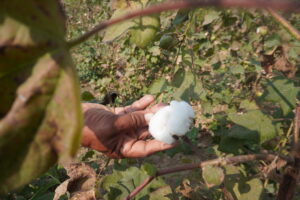
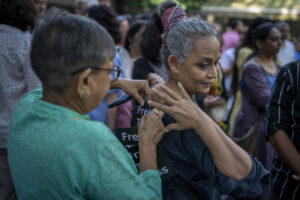

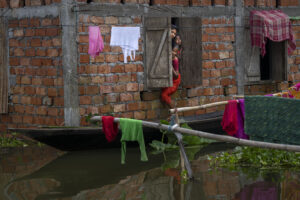
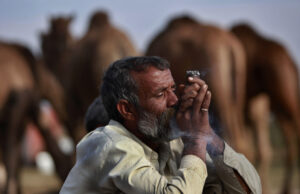
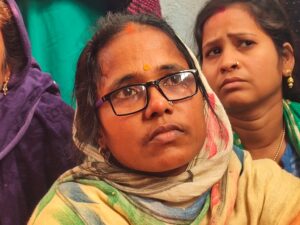
You need to be a supporter to comment.
There are currently no responses to this article.
Be the first to respond.